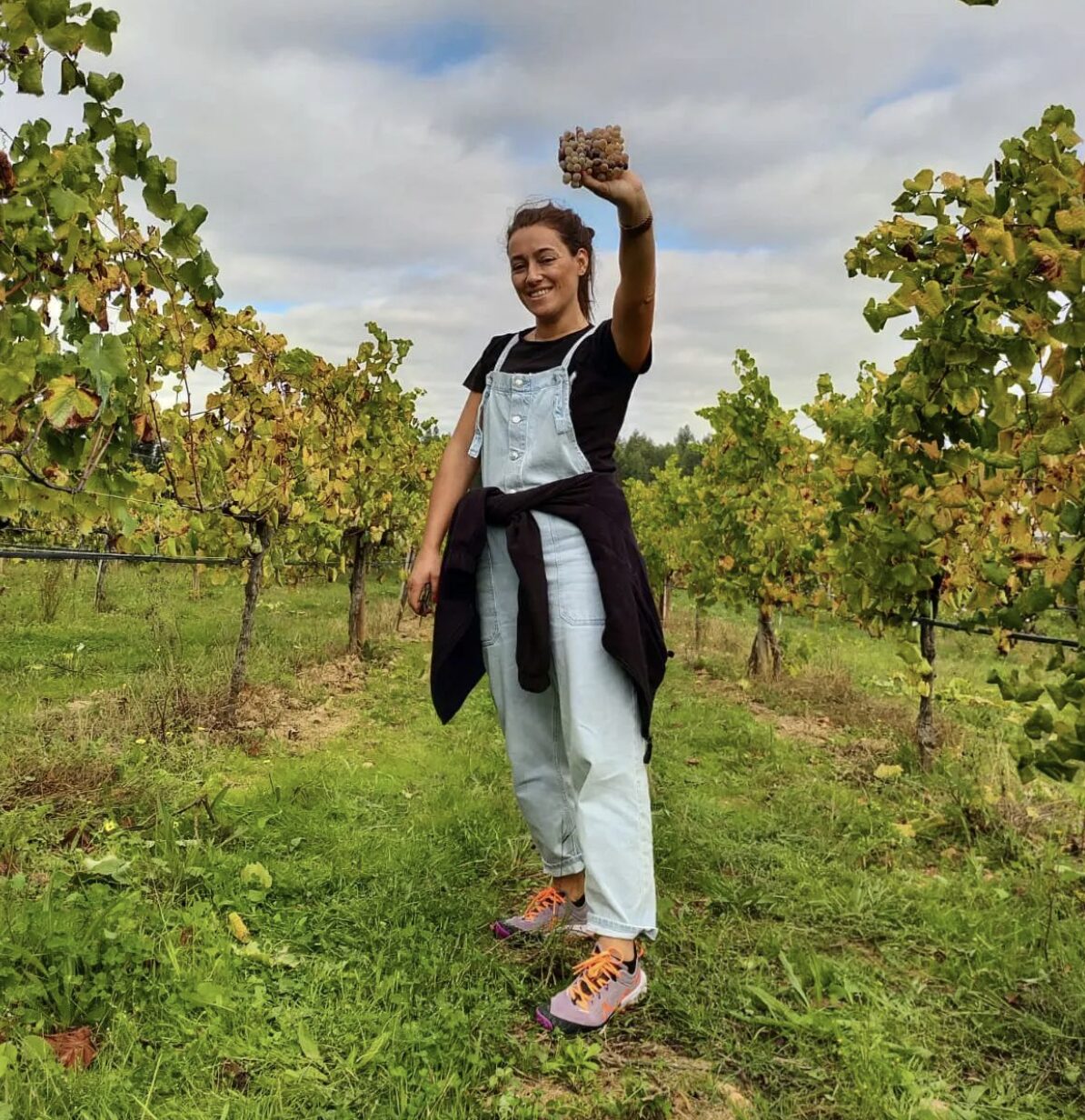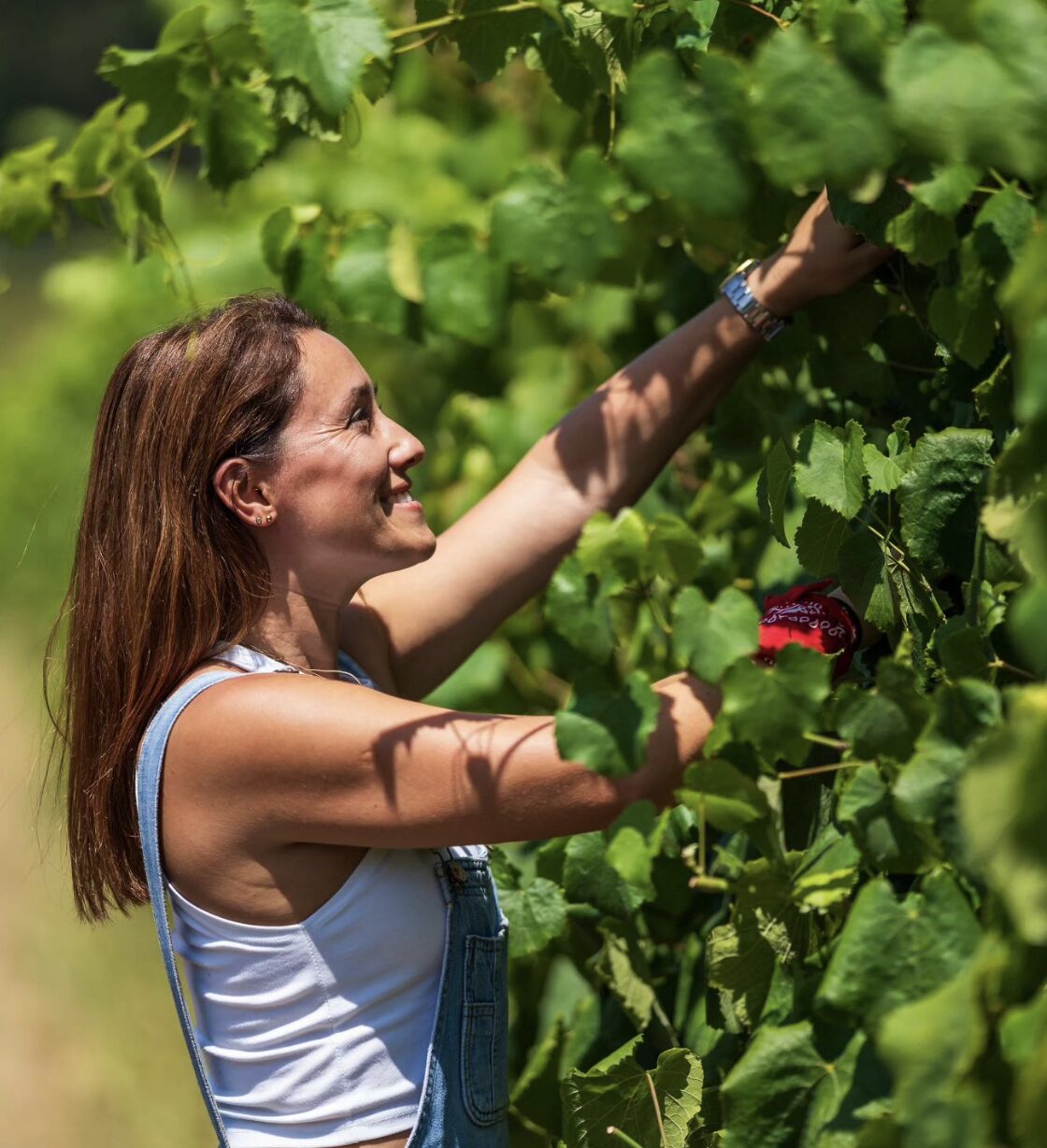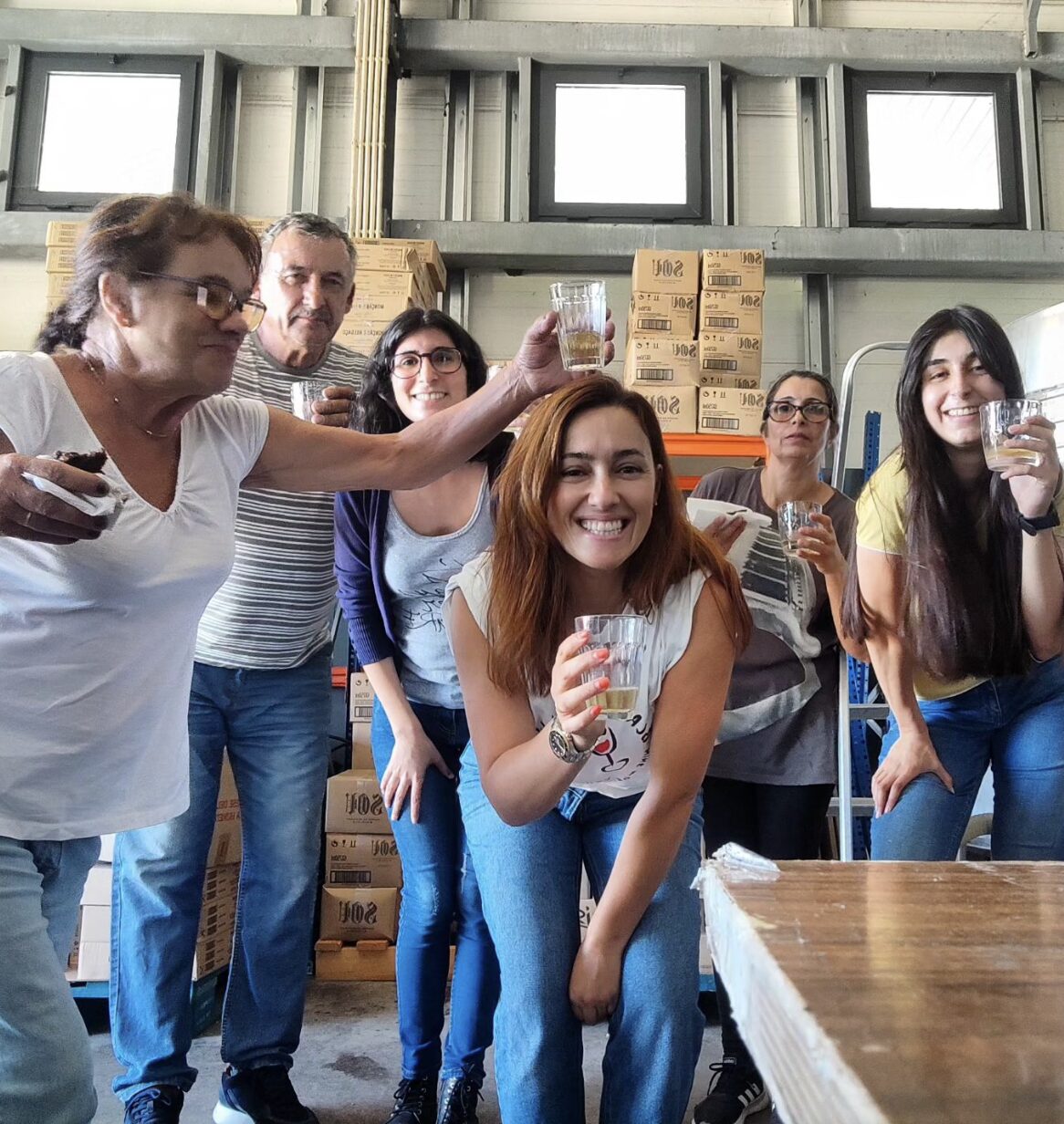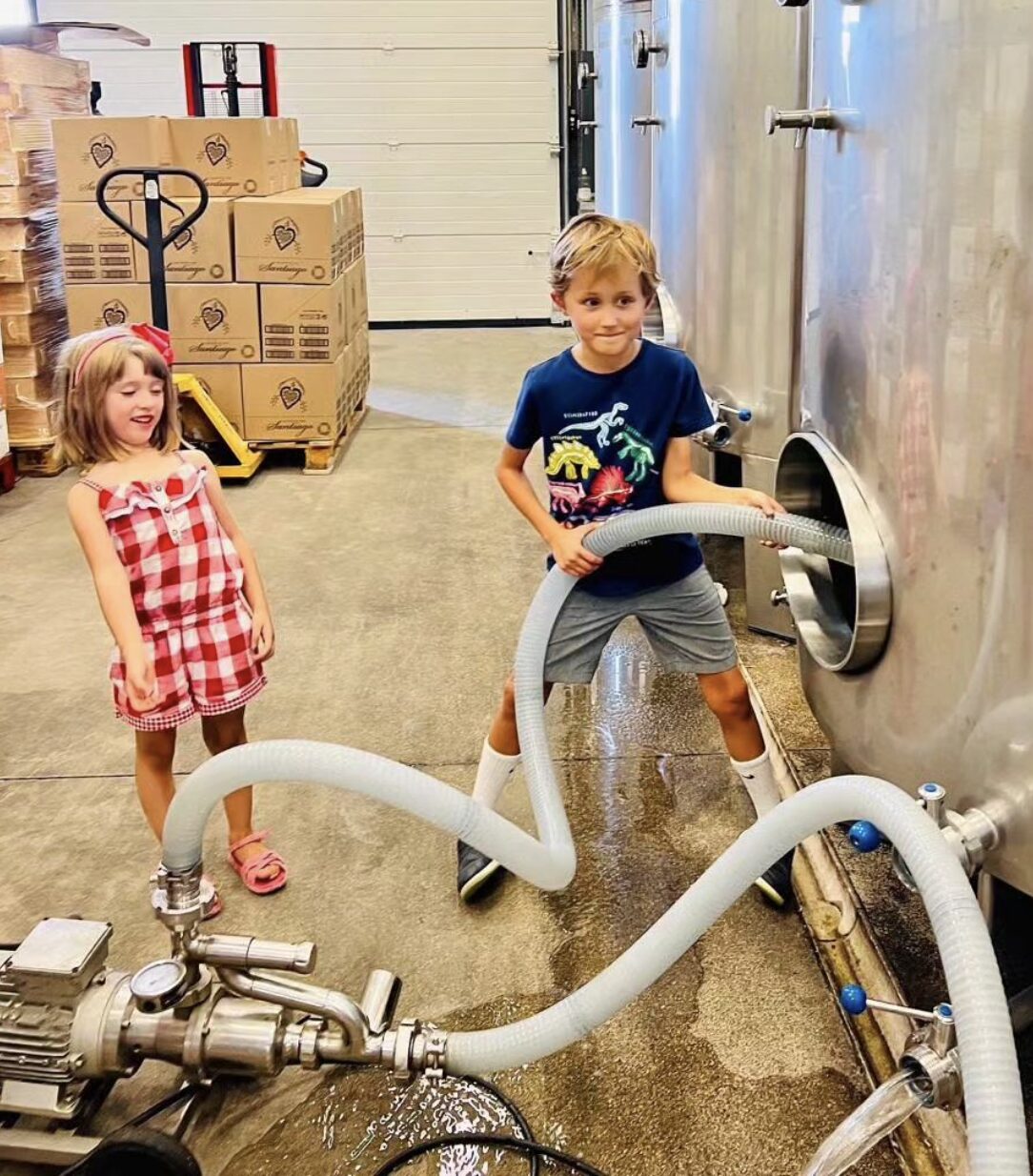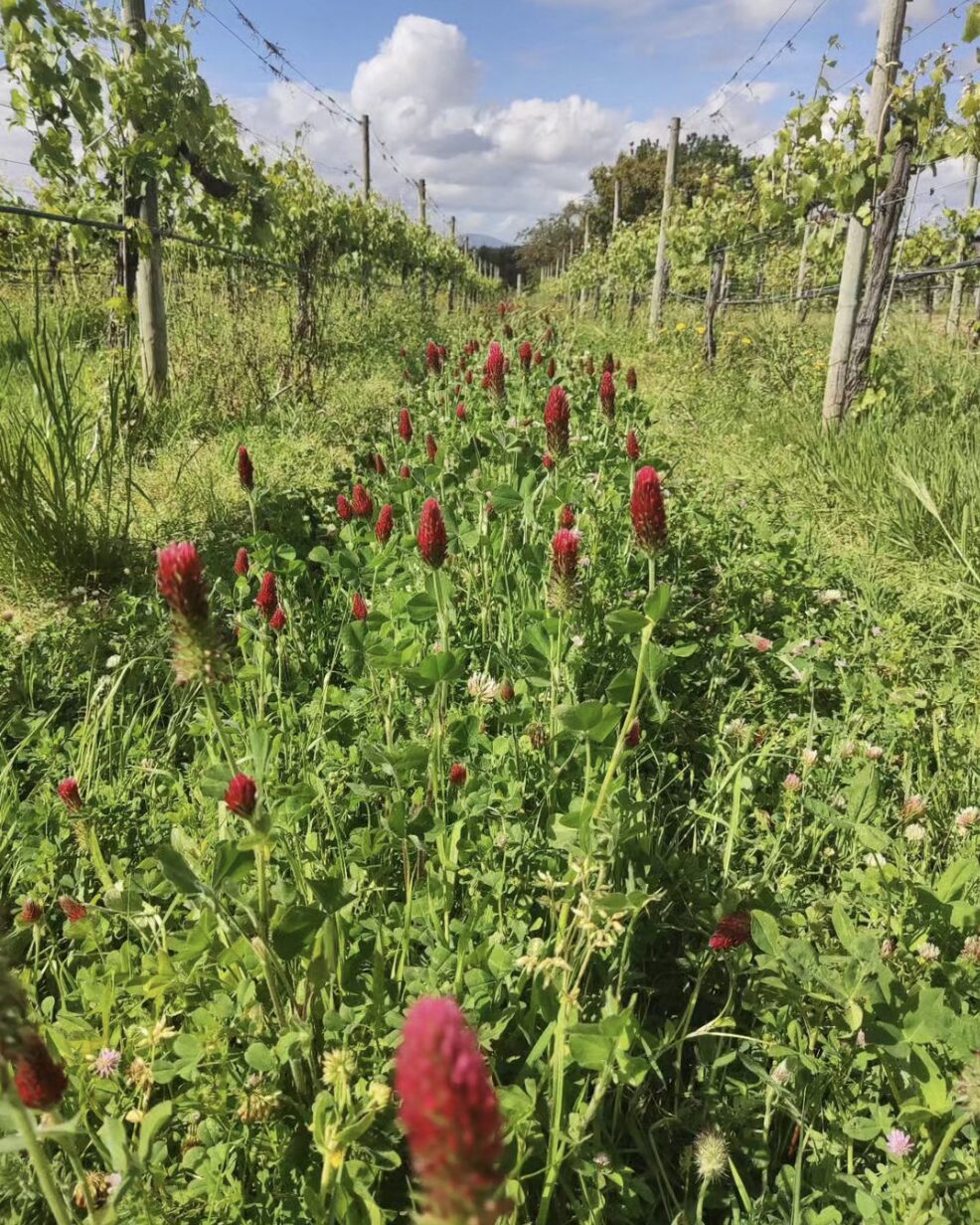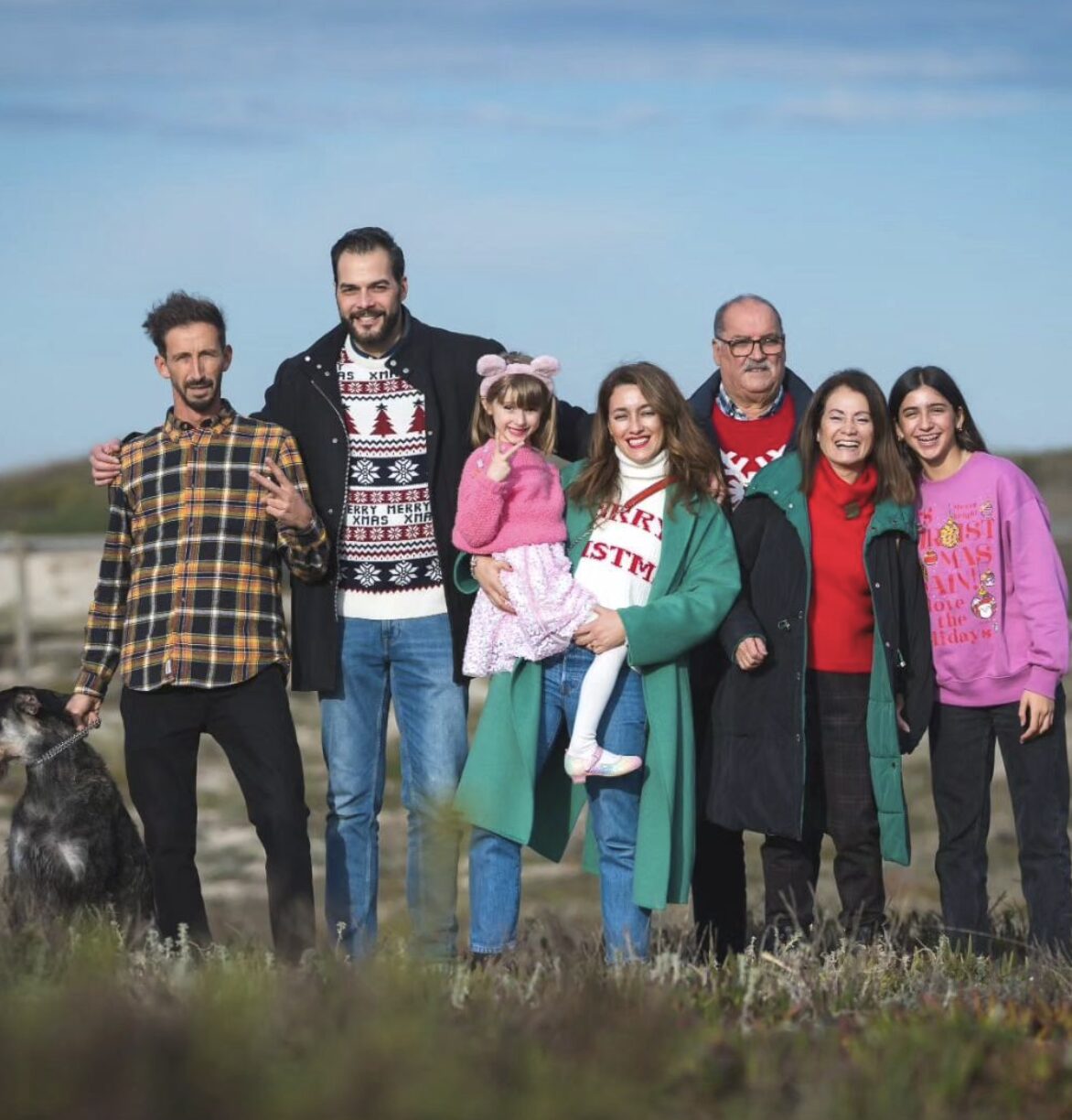2022 Quinta de Santiago ‘Vinha do Pisco’ Alvarinho/Loureiro
Alvarinho, also known as Albariño in the neighboring Galicia region of Spain, is known for being a light and refreshing coastal sipper. Paired with tapas in Spain and Portugal, enjoy this wine with seafood, salads, and veggie forward dishes.
Organic farming practices, hand-harvested, native yeast fermentation, and woman-winemaker.
- Tasting Notes lime, lime zest, lime blossom, green apple, grapefruit, fresh cut herbs, white pepper, minerality
- Variety Alvarinho/Loureiro
- Region Portugal, Vinho Verde
- Volume 750ml
- Alcohol Volume 12%
- Table Talk Joanna is hyper-focused on sustainability and biodiversity. She leads a group of regional growers focused on water use and the preservation of local natural resources.
$34.00
Quinta de Santiago is a family-owned farm spanning 7.5 hectares (18.5 acres) along the banks of the Minho River in the Monção and Melgaço sub-region of Vinho Verde. It has been in the Santiago family since 1899. For about 100 years, Quinta de Santiago’s main activity was the production of wines, olive oil, lupine, cereals, milk, meat, and fruit for self-consumption. Grapes grown in the vineyards were sold to large cooperatives in the region. This changed in 2009 and from the passion and determination of then owner, Grandma Mariazinha Santiago (age 86), her children, and grandchildren, a boutique winery was born.
At the head of the family’s winery is Joana Santiago, a self-described “authentic Minho woman” – driven to honor her family’s heritage. It is from a multi-generation devotion to the family’s land and vineyards that the special qualities of Quinta de Santiago are rooted. Santiago family combine tradition, modernity, and enthusiasm to create authentic wines expressing the terroir of the region’s and farm’s native varietals.
The Vinho Verde wine region is located in the northwest of Portugal, extending across the Minho region. It’s one of the country’s largest wine-producing areas and is famous for its light, refreshing white wines, although red and rosé varieties are also produced.
Here are some key points about the Vinho Verde wine region:
Climate and Geography: The Vinho Verde region has a maritime climate influenced by the Atlantic Ocean, with mild temperatures and high levels of rainfall. The region’s landscape is characterized by lush green countryside, rolling hills, and valleys.
Grape Varieties: The region primarily produces white wines made from indigenous grape varieties such as Alvarinho, Loureiro, Arinto, and Trajadura. These grapes are well-suited to the region’s climate and soil, producing wines with vibrant acidity and distinct aromatic profiles. Some red and rosé wines are also produced, often using grapes like Vinhão and Espadeiro.
Winemaking Techniques: Vinho Verde wines are typically vinified using modern winemaking techniques to preserve their fresh and fruity characteristics. Many of the wines are made using the “green wine” style, which means they are intended to be consumed young and are often slightly effervescent or lightly sparkling.
Styles of Wine: While most Vinho Verde wines are white and known for their crisp acidity and lightness, there are variations in style. Some wines may be slightly fizzy, known as “Loureiro” or “Alvarinho” styles, while others may be still. Rosé and red Vinho Verde wines tend to be less common but offer different flavor profiles, often with fruity and floral notes.
Food Pairing: Vinho Verde wines are incredibly versatile when it comes to food pairing. Their high acidity and freshness make them an excellent match for seafood dishes, salads, light appetizers, and Asian cuisine. They also pair well with traditional Portuguese dishes such as grilled sardines, bacalhau (salted cod), and caldo verde (green soup).
Quality Designations: The Vinho Verde region has several quality designations, including Vinho Verde DOC (Denominação de Origem Controlada) and Vinho Verde VR (Vinho Regional), which indicate the geographical origin and quality standards of the wines produced in the region.
Sustainability: Many producers in the Vinho Verde region are committed to sustainable viticulture practices, including organic and biodynamic farming methods. This focus on sustainability aligns with the region’s natural environment and helps to preserve its unique terroir for future generations.
Overall, the Vinho Verde wine region offers a diverse range of wines that showcase the unique terroir of northwest Portugal, making it a popular choice for wine enthusiasts seeking fresh, vibrant, and approachable wines.
Related Items
-
2022 Bachelet-Monnot Santenay Blanc
$73.00Made by one of Burgundy’s most respected producers, this bottle is ideal for those who appreciate well-made Burgundy Chardonnay with a perfect balance of power and finesse. Santenay, known for its full-bodied whites, pairs wonderfully with a wide range of dishes thanks to the balance of richness and acidity in the wine. Enjoy with grilled scallops, lobster, roasted chicken, creamy pasta dishes, and soft cheeses like Brie or goat cheese.
Biodynamic farming practices, hand-harvested 30+ year-old vines, native yeast fermentation and aged for 12 months in barrel (12% new).
-
2021 Contratto Metodo Classico Pas Dose Millesimato
$39.00You are drinking history when you pop this cork. This 19th century estate is the birthplace of Metodo Classico and these wines have graced the tables of not only the Vatican, but also the House of Savoy (the Italian Royal Family), as well as the British monarchy throughout history. This is dry, refreshing and incredibly food friendly.
Organic farming practices, hand-harvested, native yeast fermentation, 36 months on the lees, hand-riddled, and around 7,000 cases produced annually.
-
2024 Nanclares Y Prieto Rías Baixas ‘Dandelion’ Albariño
$35.00Alberto Nanclares and Silvia Prieto make transparent, Atlantic-influenced wines, mainly with Albariño from old vines around the village of Cambados (where the winery is located). Employing organic farming practices and a restrained hand in the cellar, the pair have managed something very rare: the refinement of Albariño into angular, age-worthy wines that express the fascinating terruños of Cambados and Rías Baixas.
Organic farming practices, hand-harvested, native yeast fermentation in stainless steel, 5-7 months spent on the lees, bottled without stabilization or clarification.
-
NV Delavenne Père & Fils Brut Nature Grand Cru Champagne
$60.00This dual-vintage, single-village Brut Nature is created without added sugar. It is fresh, saline-driven and the purest expression of Delavenne’s terroir in the Bouzy Grand Cru, located in the Montagne de Reims.
Organic farming practices, native yeast fermentation, no fining/filtering, & vegan-friendly.




